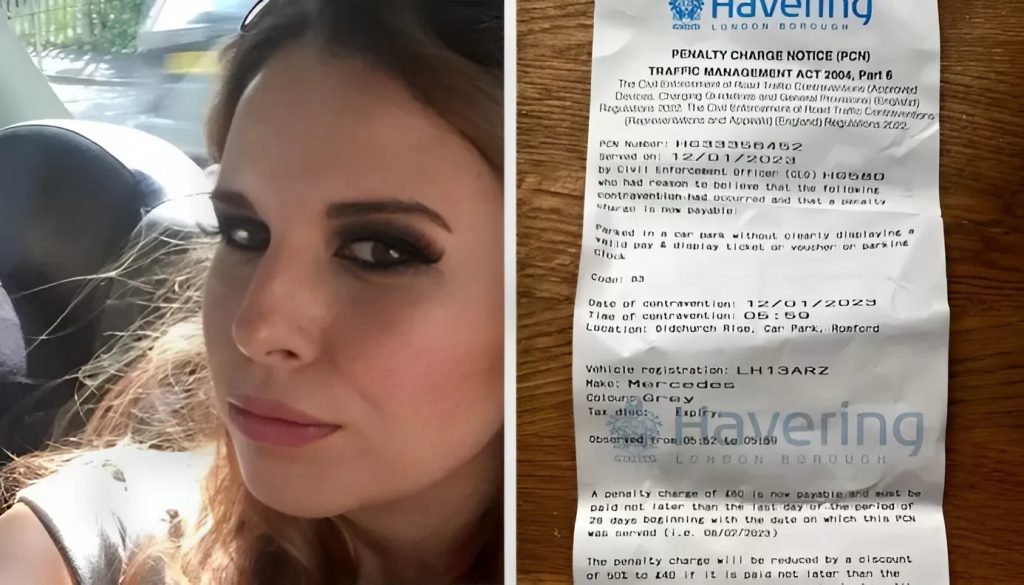Some stories are so simple on the surface, yet they strike a deep chord. They don’t need drama. They don’t need embellishment. All they need is to be told truthfully — because their quiet power speaks louder than any headlines.
This is the story of a nurse who saved lives for 13 hours straight and walked out of her hospital shift only to find a parking fine on her windshield.
Not because she blocked an entrance. Not because she parked recklessly. But because her car stood a few meters outside of a designated zone, in an otherwise empty space. A choice she made in a rush to save a patient.
This is a story about dedication, and how sometimes — when systems forget the people inside them — even the most noble acts are met not with gratitude, but with punishment.
The Dream That Became a Calling
Siranush had dreamed of working in medicine since childhood. Her ambition was to become a doctor, but financial limitations steered her toward nursing instead. She didn’t treat it as a second choice. She embraced it.
For her, nursing was not just a job — it was a responsibility, a mission. She understood that a quiet word, a steady hand, or a calm presence could make all the difference to someone terrified, vulnerable, or in pain.
She worked long shifts in a public hospital — not always ideal conditions, not always enough hands, but always with her full heart. That particular day, she was scheduled for a 13-hour shift. Nothing unusual. Just another long day in a life filled with them.
Thirteen Hours of Uninterrupted Commitment
During that shift, three patients were assigned to her care. One was an elderly man struggling with erratic breathing. Another, a young woman in the midst of a severe allergic reaction. The third, a child with a dangerously high fever.
There were no breaks. No meals. No time to sit down. Just movement, decisions, precision, and care. She stayed at their sides, adjusted treatments, comforted relatives, translated medical language into human understanding.
When her shift finally ended, she walked out of the hospital exhausted but fulfilled. She knew she had done everything she could. Lives had been stabilized. One life may have even been saved.

But then, she saw the white slip beneath her windshield wiper.
Violation: Illegally Parked Vehicle. Fine: 30,000 drams.
The Cost of Service
She looked at the note, then at the empty space around her car. No entrances were blocked. No other vehicles were affected. But the rules were clear: the area wasn’t a designated parking zone. The law was the law.
Siranush didn’t argue. She didn’t call the municipality. She paid the fine.
But inside, something broke.
It wasn’t about the money. It was about the message.
She had just poured her heart and soul into a day of saving lives — and the system that should have supported her responded with punishment.
When the System Sees Only the Surface
Rules are important. Regulations help keep order. But a just system knows when to consider the context, not just the text.
Siranush’s car had been parked a few meters off the line because she had rushed to get inside the hospital on time. That decision may have helped her reach a patient moments sooner. That patient’s life may have depended on it.
But the system didn’t see any of that. The system saw only a vehicle, slightly out of bounds. A violation. A number to add to a tally.
What it missed was a human being — tired, devoted, giving more than she was ever required to give.
This Isn’t Just Her Story
Siranush’s story is just one example. But it stands for thousands more. Teachers, medics, firefighters, social workers — all those who go beyond their job descriptions every day, quietly, without reward or recognition.
They don’t seek applause. They don’t expect medals. But when the one thing they get in return is a fine — not appreciation — it becomes more than unfair. It becomes offensive.
Because at the heart of every profession that serves others is the assumption that the system stands beside you. That when you bend over backward for society, society won’t turn its back on you.
A Moment That Says Too Much
It’s not the 30,000 drams that matter. It’s what that piece of paper represents.
It says: we saw your mistake, but not your effort.
It says: we measured your distance from a line, but not your distance from burnout.
It says: you broke a rule — we don’t care why.
That message is what hurts most.
Because what we need from a society isn’t just accountability. We need compassion. Context. And a system that know
